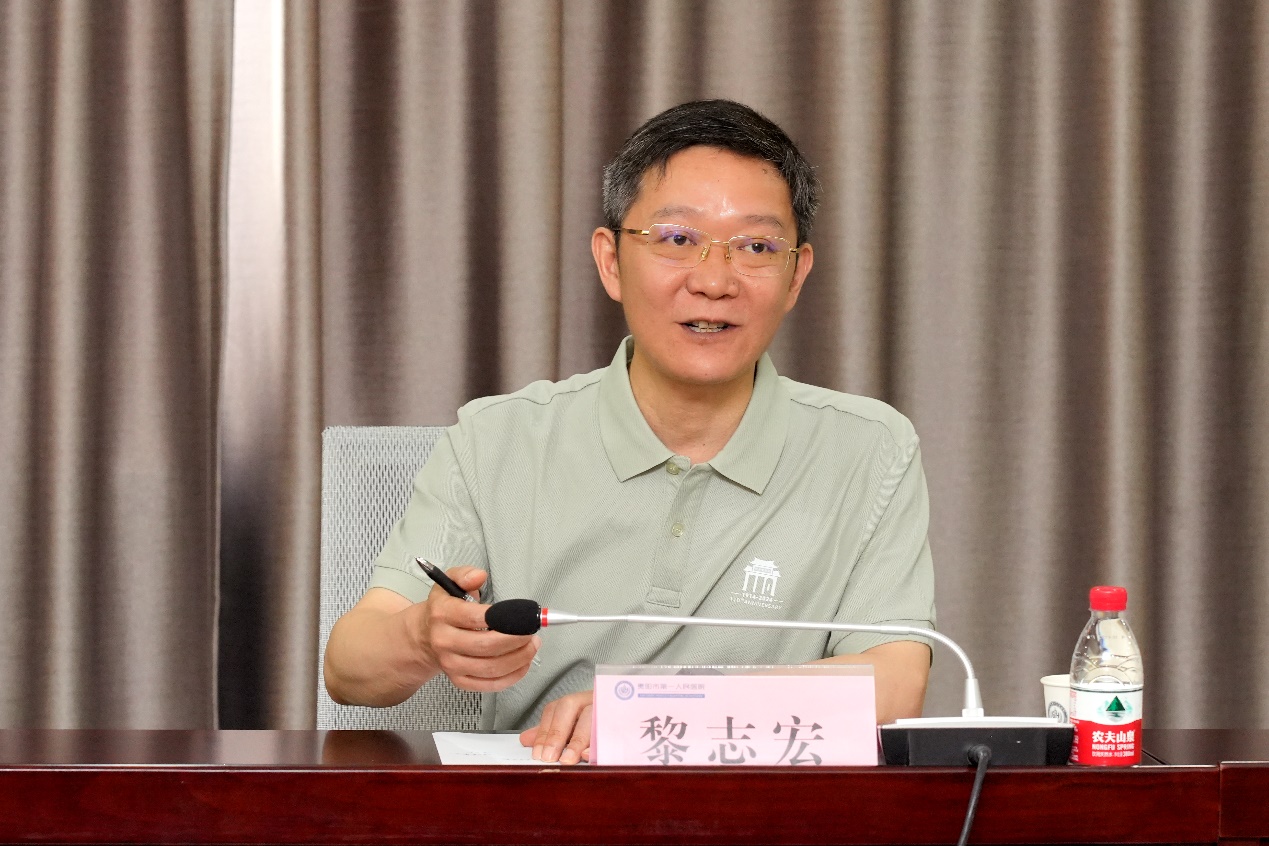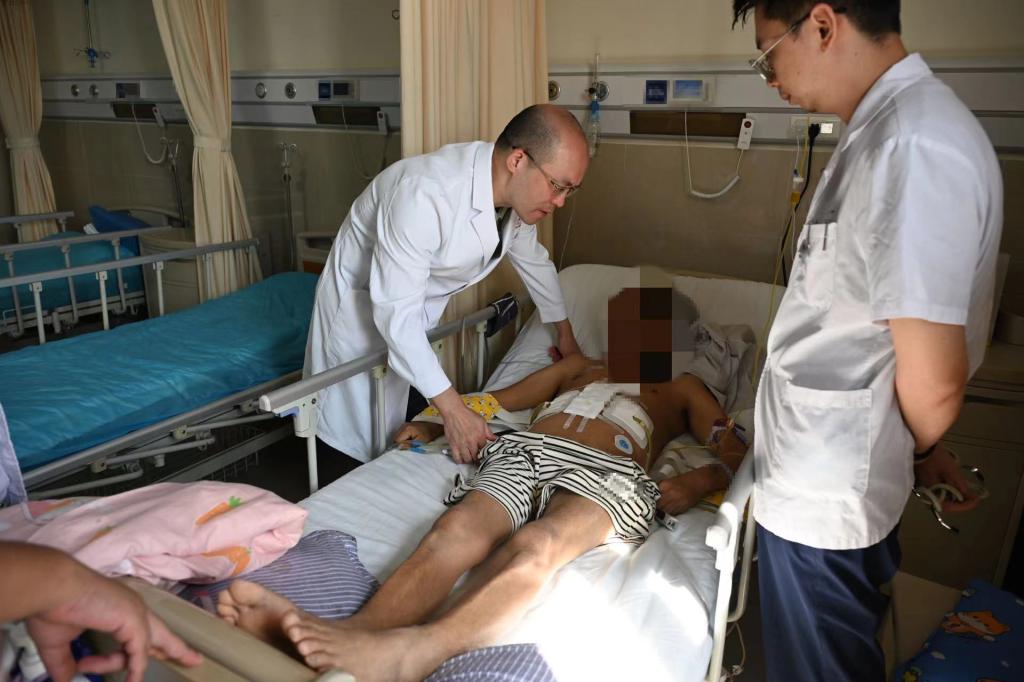On July 23, as part of the “Retracing the Xiangya Westward Journey” initiative, leaders and staff from Xiangya School of Medicine visited the Longdongbao campus of the First People’s Hospital of Guiyang for a series of medical exchange activities. These included discussions, teaching rounds, joint surgeries, and academic presentations.

Central South University Vice President Li Zhihong, Xiangya School of Medicine Deputy Party Secretary Wu Shiming, Vice Dean Zeng Yi, and Director of the Department of Laboratory Animals Zhou Zhijun engaged in in-depth discussions with Guiyang Deputy Mayor Liu Lan, Director of Guiyang Health Commission Guo Lili, and leaders of the First People’s Hospital of Guiyang. Li Zhihong highlighted Xiangya’s medical achievements, shared insights on public hospital performance evaluation, and discussed enrollment for residency and specialty training programs. He emphasized the longstanding and close relationship between the two institutions and proposed future collaborations in undergraduate and graduate education and teaching hospital development. Participants also shared experiences on party building and medical education, exploring deeper cooperation in student training and research management.

Chang Shi, Xiangya School of Medicine Party Secretary and Chief Surgeon of Thyroid Surgery at Xiangya Hospital, conducted teaching rounds and performed a joint surgery in the Thyroid Surgery Department. After thorough preoperative preparations, he successfully performed an endoscopic thyroid tumor resection, providing detailed explanations of key steps during the procedure. Post-surgery, Chang also conducted a follow-up for a patient from the previous day’s free clinic.

Huang Gengwen, Vice Dean of Xiangya School of Medicine and Chief Surgeon of Pancreatic and Hernia Surgery at Xiangya Hospital, led teaching rounds and case discussions in the Hepatobiliary Surgery Department. He reviewed the postoperative condition and test results of a patient with acute severe pancreatitis, offering a focused lecture on infection control and postoperative care. Huang discussed indicators and treatment plans for pancreatitis, emphasizing critical points for improving survival rates through effective intervention and patient care.

At the academic report session, Director of Hospital Management Peng Shifang discussed managing severe liver disease-induced maternal crises. Vice Dean Huang Zhijun presented on empowering clinical research with digital technology. Vice Dean Liu Hong introduced new diagnostic and therapeutic technologies for skin diseases. Vice Dean Li Xuejun talked about precision neurosurgery clinical practices. Bai Mei, Director at the First People's Hospital of Guiyang, presented research on the effects of enriched environmental intervention on adolescent depression in rats and the VEGF-FIk-1 mechanism in hippocampal neurogenesis. Zhou Xiaoqian, another director at the hospital, discussed research on the mechanism of zeralanol inhibiting colorectal cancer stemness through the Wnt/β-catenin signaling pathway. The session was well-attended, with participants expressing that they gained valuable insights.
This event, which received strong support from the Guiyang Municipal Party Committee and Government, Guiyang Science and Technology Bureau, Guiyang Health Commission, and Xiangya alumni in Guizhou, is an important initiative for preserving and passing on Xiangya’s cultural heritage by jointly exploring historical materials related to Xiangya in Guiyang.
(First Review: Li Ruijun; Second Review: Zhou Zhijun; Third Review: Chang Shi)
